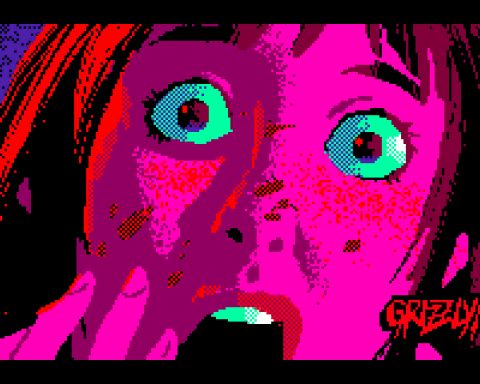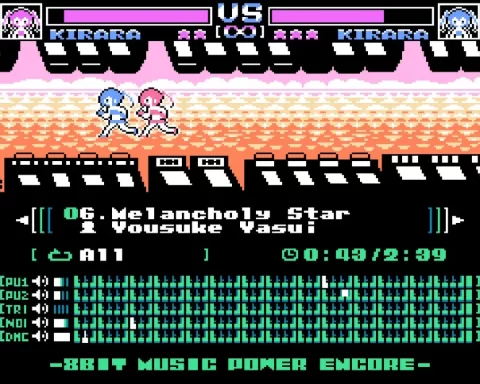It has been a good couple of months for the simulator genre on consoles. The Nintendo Switch has had ports of Jurassic Park: Evolution, RollerCoaster Tycoon 3, Tropico 6 and even little indie projects like Mad Tower Tycoon. Over on PlayStation 4, we were recently able to play colonial trading simulator, Port Royale 4, and now we have the port of the sublime Planet Coaster to indulge in.
Planet Coaster is the spiritual successor to Theme Park and RollerCoaster Tycoon that, ahead of its release on PC a few years ago, fans were absolutely desperate for. It had been years since we’d had a new theme park builder to enjoy, and with RollerCoaster Tycoon in limbo, we were wondering where we’d get it from. Planet Coaster delivered. The name is descriptive; you’re put in charge of building the theme park of your dreams, stocking it full of entertaining rides, junk food stalls, and souvenir stalls to grift people out of their money with balloons and stuffed toys and things. You’ll also want to consider the aesthetics of your park, installing themed areas and making sure that people in those long line-ups don’t get bored.
It’s easy to understand the appeal of a theme park simulator. Many of us have fond memories of going to Disneyland or our local theme parks as children. The aesthetics, soundscape, and ambience of the theme park evokes a powerful sense of nostalgia in us. Where other “themed” simulators rely on an inherent interest in business (tower builders, which are all about efficient use of space to make money) or humour (hospital builders, because hospitals aren’t inherently entertaining places), park builders occupy a special space in that playing them isn’t really about challenging the usual skills that a simulator tests. It’s about the joy of building a playground.

Planet Coaster immediately delivers there because the toolset to build the game’s marquee rides (the rollercoasters) are robust and a lot of fun to play around with. You’ve got very fine control over making rides utterly terrifying or relatively gentle… and if you don’t want to spend hours doing that, you can always download community creations or just drop some of the pre-built ones in there. It’s a little fiddly making these spectacles with the controller – Planet Coaster was built for mouse control and while there’s a “redesigned interface” for the PlayStation 4 controller it’s not ideal – but there is a real joy in creation, and watching that creation become the big-ticket reason to visit your park.
While Planet Coaster is anything but a dry business simulator, it’s not like you can ignore that side of things either. After all, you do need money to buy rides, and pay the staff to maintain the park. If the money runs out, the park goes out of business. Planet Coaster does a good job of allowing you to efficiently monitor the financial performance of the park and – critically – gauge how your customers are enjoying their time in your park. If customer sentiment drops, then you’ll not be able to charge as much for rides and food. If your customer ratings are high, you can rake in the cash. Understanding what problems people do have with the park is therefore key to success, and Planet Coaster collates and provides that information in such a way that it’s effortless to monitor the dynamics at play in your park.
One area that shows how the developers have built on the foundations set by the likes of RollerCoaster Tycoon in this sub-genre is the need to pay attention to aesthetics. In RollerCoaster Tycoon it was always a matter of personal taste – you’d put statues and water fountains down, and create themed sections of the park simply because that’s what you wanted to do. In Planet Coaster, consideration for the aesthetics helps boost the popularity of rides and, subsequently, the performance of the park. There are times where it becomes arbitrary and you’ll be dropping random bits of scenic junk down just because it fits into a space and will boost the satisfaction of a ride, but overall it’s clever work on the part of the developers to encourage players to make good use of the space available to them… and then make it pretty.

The one area that I feel is at odds with the otherwise playful nature of Planet Coaster is staff management. I understand the importance of having staff as a cost that you need to manage in order for the park to be effective, and the need to hire janitors, mechanics, security, entertainers and the like has always been a feature of the genre, however in Planet Coaster it’s clunky, and you’ve got to spend a considerable amount of time monitoring the staff to make sure that they’re doing their jobs (particularly with regards to the food and shop vendors), and then dropping into the spreadsheets to make sure they’re being trained, not overworked, and are happy in their jobs. It’s the one moment where the business side of Planet Coaster runs over the experience and it becomes a spreadsheet game, and by the time your park is of a reasonable size, it’s a time-consuming task.
That aside, Planet Coaster is indeed the best theme park creator we’ve ever had. In Australia, there aren’t many theme parks left at all (can you believe that Sydney – a major global city – only has one theme park, and it’s a tiny space that can be walked across in a few minutes), but there was a big one when I was growing up, and this game takes me back to looking forward to going to that theme park every so often. There are some UI issues, and one or two clunky moments within the management side of the game, but nothing that detracts from the sheer creative joy of playing around with those coasters and creating the park of your dreams. I can almost smell the churros.
Editor-in-Chief
Find me on Twitter: @mattsainsb
The critic was provided with a copy of this game for review.








